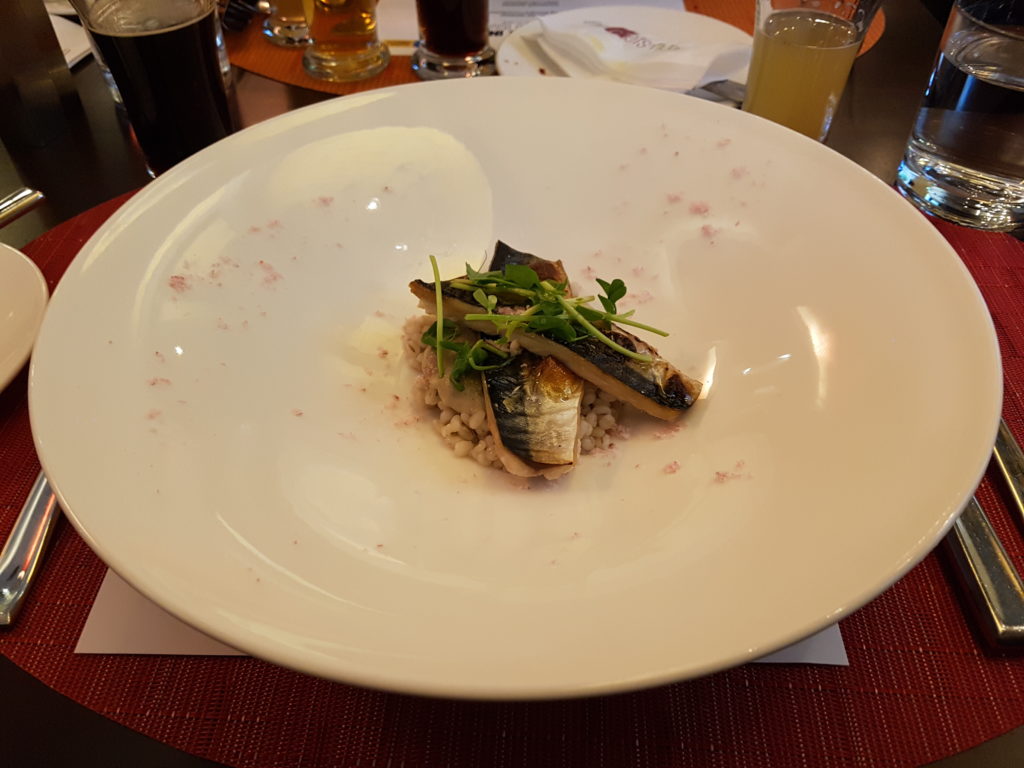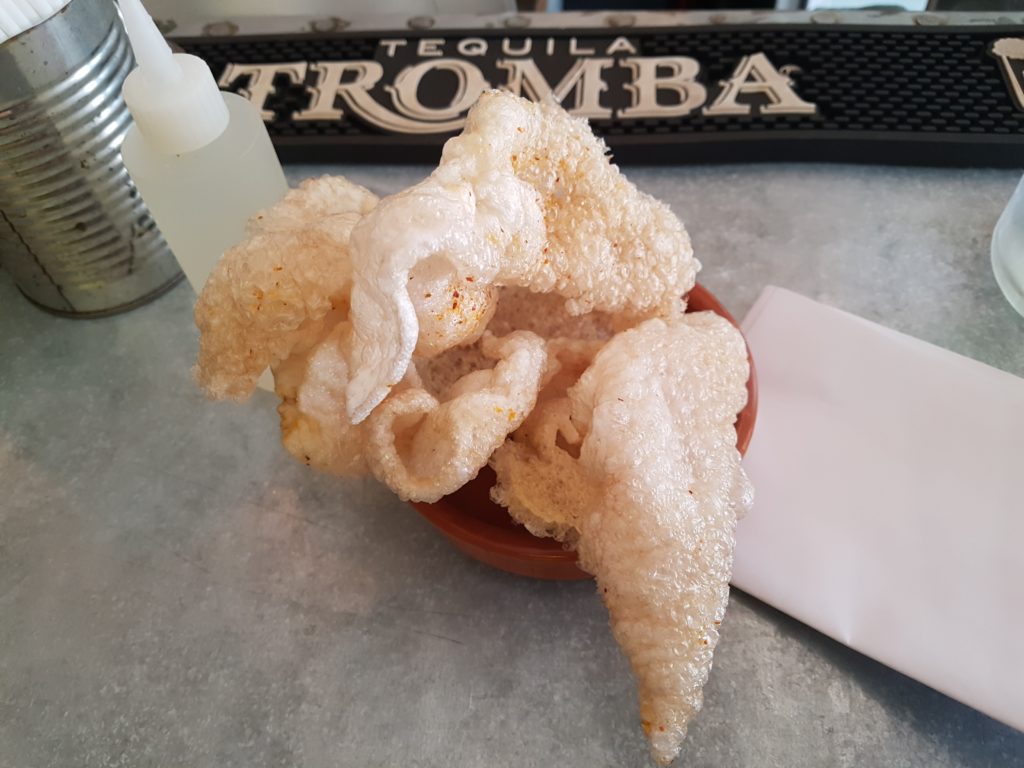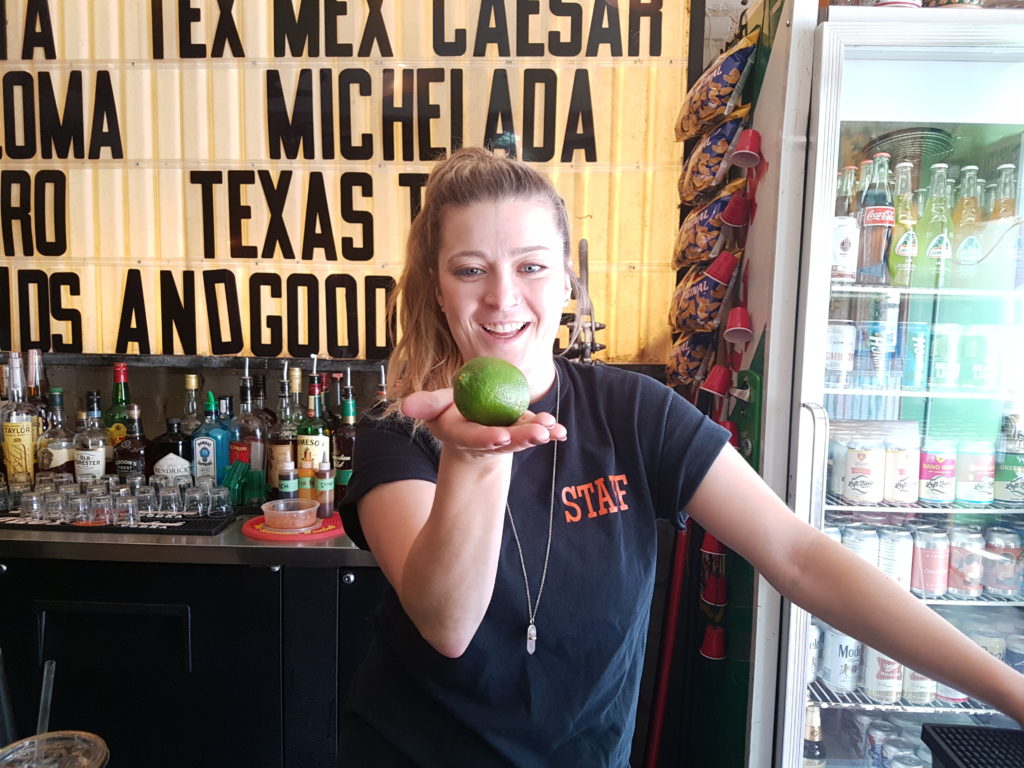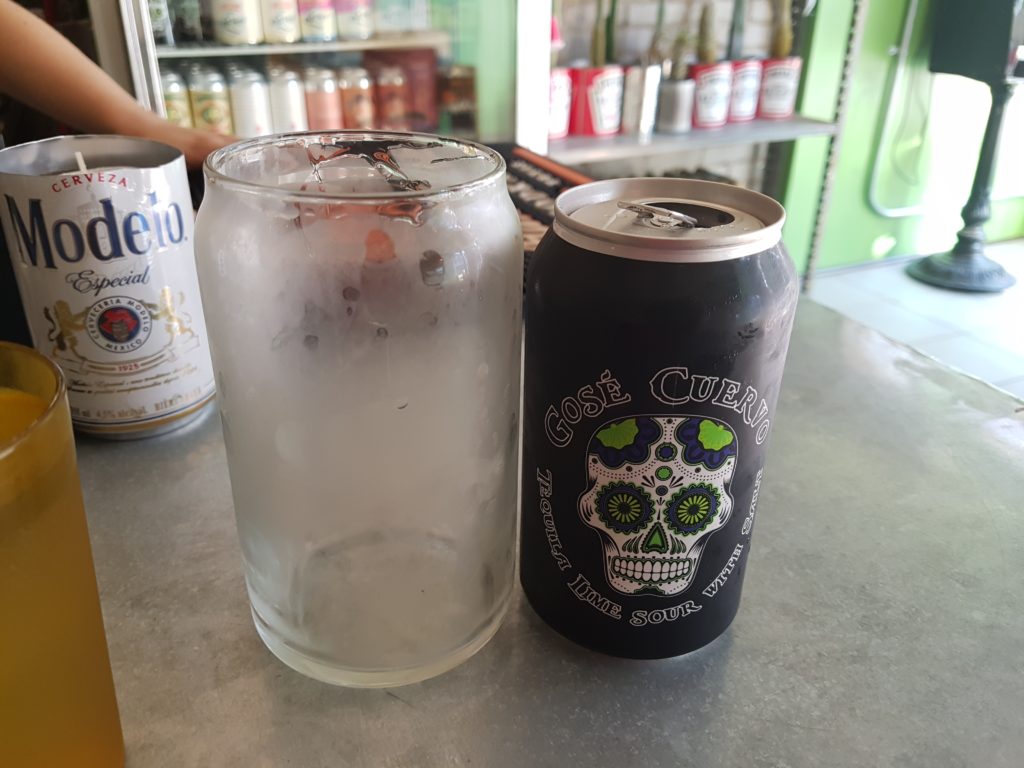In writing and researching about beer and food, I’ve elected to start from the ground up. Despite having made that decision, there are always other avenues of approach. Early last week I was at a beer dinner at The Chef’s House at George Brown College featuring four breweries from East Toronto and featuring the work of chefs Tara Lee from Eastbound Brewing and Ryusuke Yamanaka from Godspeed Brewery.
The dish of the night was mackerel with shiitake cream over pearl barley garnished with sakura salt. There’s a lot to deconstruct there. The flaky, oily flesh of a small darting fish, all fast twitch muscle and flocking movement; the depth of umami in the cream and the slight textural resistance of each barley corn in the mouth. Dressed with salt that has preserved the flavour of cherry blossom, defiant against the passing of spring. Paired with Left Field’s Eephus, the dish found balance with each element curtailing the others, even holding the roast in that dark brown beer in check. Harmony between elements and seasons and cultures.
I couldn’t write about that.
Friday came and it did not call for harmony. I woke up to the news that Anthony Bourdain had died in an apparent suicide. I know that I exist in a bubble on social media of like minded people, but if the outpouring of emotion I’ve seen over the weekend is any indication you probably feel the same way I do.
When I was younger and at university, I was always terrified that I was going to end up a middle manager somewhere, in some nameless company making a widget that even the consumer didn’t care about. It didn’t turn out that way, or at least it hasn’t yet. Instead of that, I became a writer and an author and I’m working with one of the best culinary schools in Canada. I can’t claim that was all because of Bourdain, but he was a significant influence.
If you read his writing, especially that early writing about kitchens, it’s not the stuff of the cookbook section. It’s not about beautifully photographed plates, but about what enables that. System D or debrouillard as he referred to it, quoting Orwell. Getting the job done within a finite space and time through adaptation and quick thinking. He talked about people on the line who simply didn’t think of calling in sick. People who turn the ugly scraps into delicious food.
Friday called for some of that.
I have been trying to think about single bites that I enjoy. I would guess that the bar snack I order most frequently are the Pork Rinds at Hot Mess Tex Mex on College. It has gotten to the point where I sometimes use Birreria Volo as a waiting room while waiting for Hot Mess to open. I like the old country soundtrack and the lack of pretense; if you order a the hard shell taco, you’re likely to need a bib.
It’s a condition of the plenty that we live with and don’t acknowledge frequently enough that you will see social media videos of things wrapped entirely in bacon. Sometimes there will be latticework bacon enmeshing additional meat. Of all the content people share, it’s my least favorite. It’s easy to love bacon. Snout and hocks and offal are harder to praise, but the pig is finite and all of it is edible.
The skin ought to be unlovable and the fact that it isn’t is down to effort. It’s a pork rind for a reason. It’s the outside of the pig; the part that has been wallowing in a substance that is probably not entirely mud. First of all, the skin needs a good scrub. It’s rubbery and collagenous.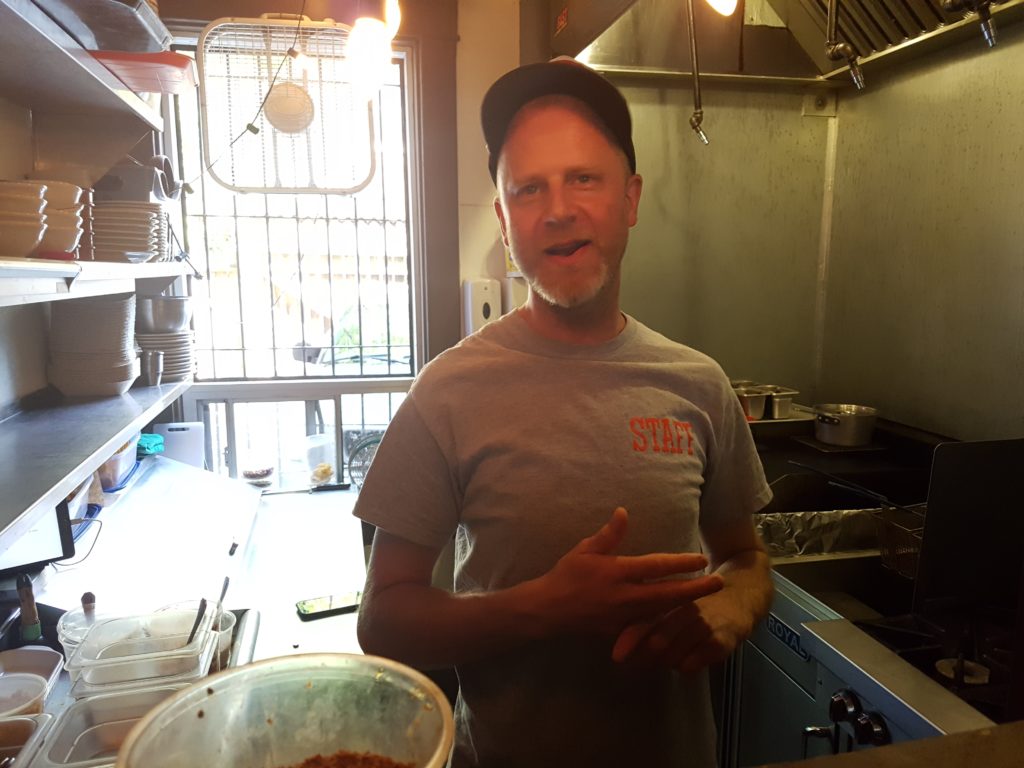
Christopher Palik, who works out of the tiny kitchen at the rear of Hot Mess describes making them as a two day process. It involves a lot of effort and a lot of waiting. You have to trim and butcher the skin into smaller parts so they will fit in a pot. You’ve got to boil the skin so that you can separate the subcutaneous fat. Once you let the boiled skin cool, that becomes easier, but there’s still knife work involved. Then they go into the oven overnight. It’s a low temperature; just the pilot light is on. It’s hot enough to dehydrate them. You need to remove the moisture before you fry them and the oven does that. They’re deep fried at 400 degrees and eventually you’re left with this transformed substance; ethereal. Literally and figuratively rendered into a different aspect, but they are still the pig’s skin.
At Hot Mess, they are served with Tajin. It’s a chili and lime seasoning that adds some citric acid and a small amount of earthy heat. There is also lime vinegar to add a bright, refreshing component and to provide amusement as you attempt to keep the vinegar from dripping on to the bar as the skin audibly crackles beneath it. All this alchemy for something like three dollars.
Lauren Richard, who you may recognize from a recent episode of Beerland suggested pairing them with Gose Cuervo from The People’s Pint. Lime and acid in a complementary beverage. Sometimes you don’t want to think too much.
Transformation is a significant part of life and that’s what Bourdain dealt in. His own, certainly. From rock bottom as a heroin addict to a roving reporter for CNN who helped explain the world to us from a standpoint of commonality; appetites that unite us in experience. In doing that he helped to provide a lot of people with the idea that they could be transformed as well. Whether he simply encouraged you to try a new dish or to go to a culinary school, the influence is widespread. There wasn’t anything else like it.
There is also a lesson. We are all in possession of ugly scraps of self that we carry around. Unlovable parts of the psyche that cause consternation and disgust, anger and despair, bad and reckless behaviour. It is important to look at those ugly scraps and to figure out how to deal with them precisely because we are finite. We will never be perfect, mais se debrouiller. And we don’t have to do it alone.
